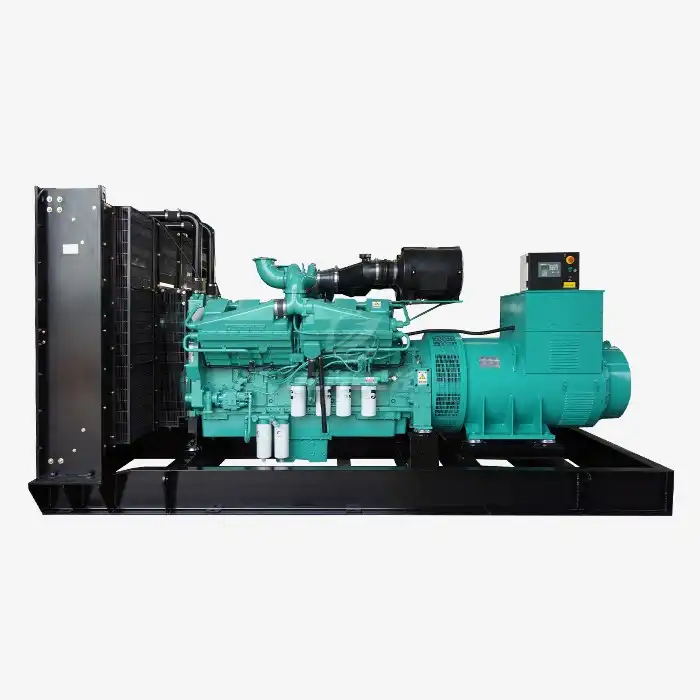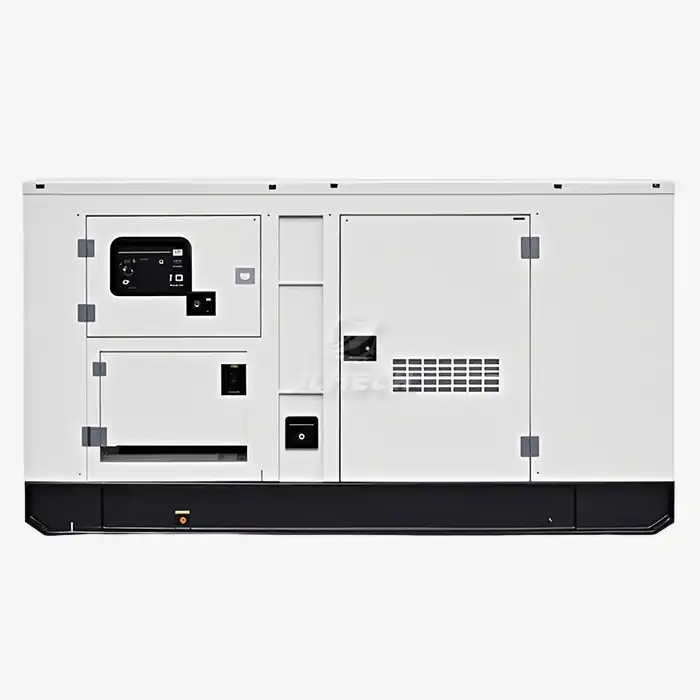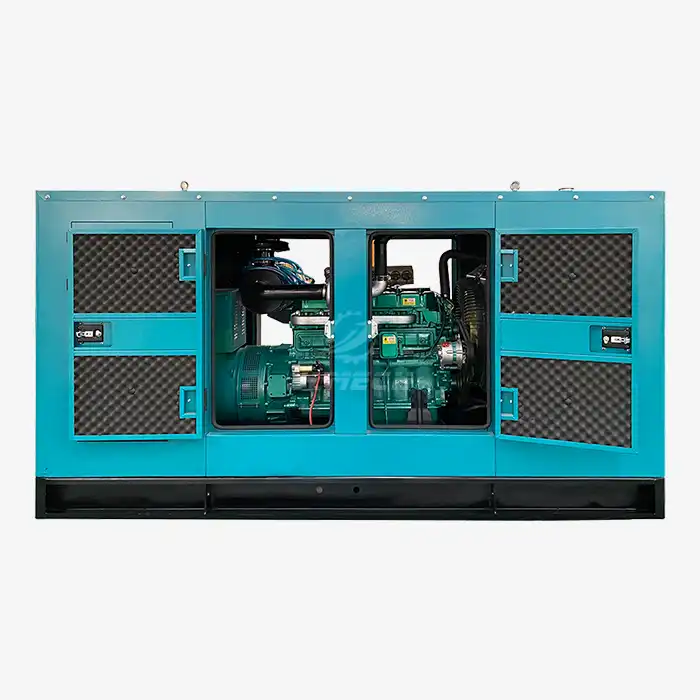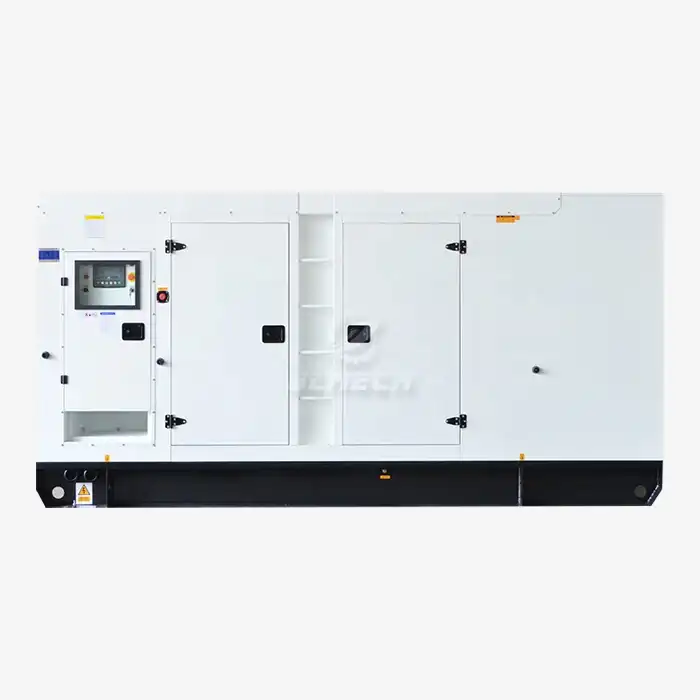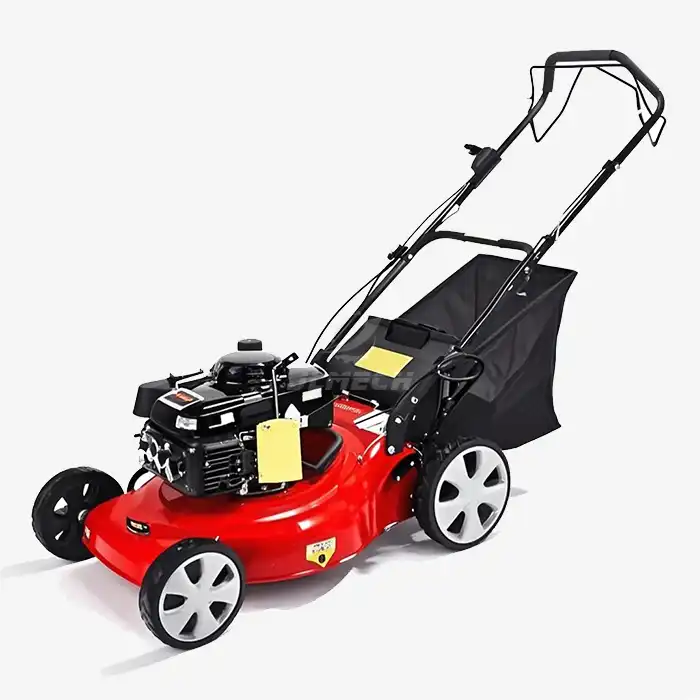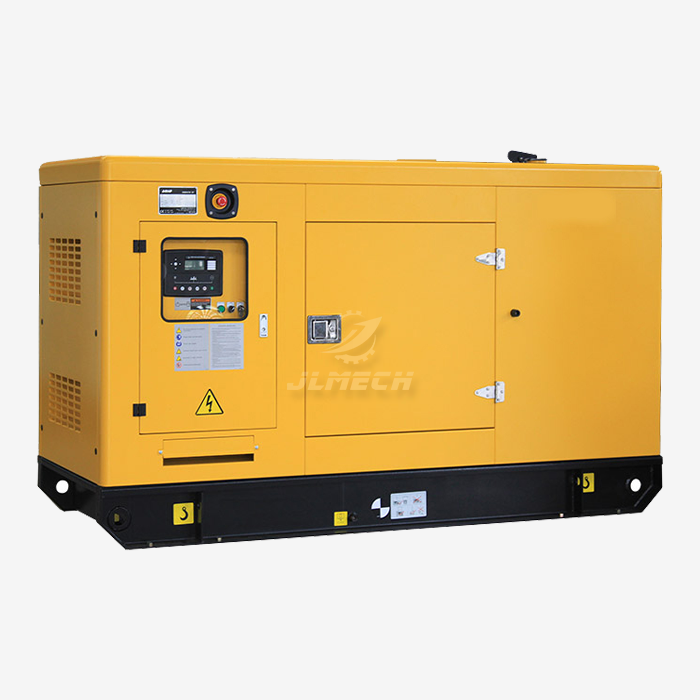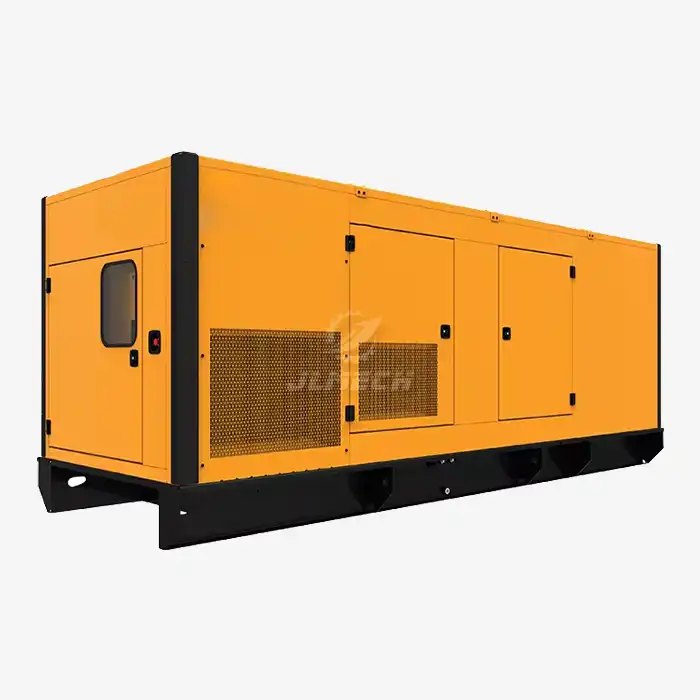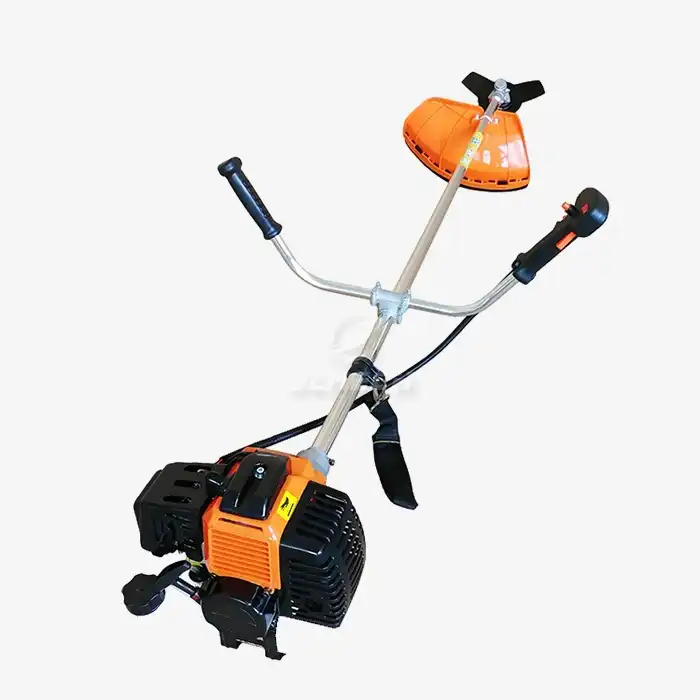How Does a Water-Cooled Diesel Generator Improve Efficiency?
A water-cooled diesel generator significantly improves efficiency through its advanced cooling system, which plays a crucial role in maintaining optimal operating temperatures. Unlike air-cooled counterparts, water-cooled generators utilize a liquid coolant circulating through the engine block and radiator, effectively absorbing and dissipating heat. This superior cooling mechanism allows the generator to operate at peak performance levels, even under heavy loads or in challenging environmental conditions. By maintaining stable temperatures, water-cooled systems reduce thermal stress on engine components, leading to enhanced longevity and reliability. Additionally, the improved heat management contributes to better fuel efficiency, as the engine can operate more consistently within its ideal temperature range. This results in reduced fuel consumption and lower operational costs over time. The water-cooling system also enables these generators to run more quietly, making them suitable for noise-sensitive environments. Overall, the efficiency gains from water-cooled diesel generators translate to improved performance, reduced maintenance needs, and enhanced sustainability in power generation applications.
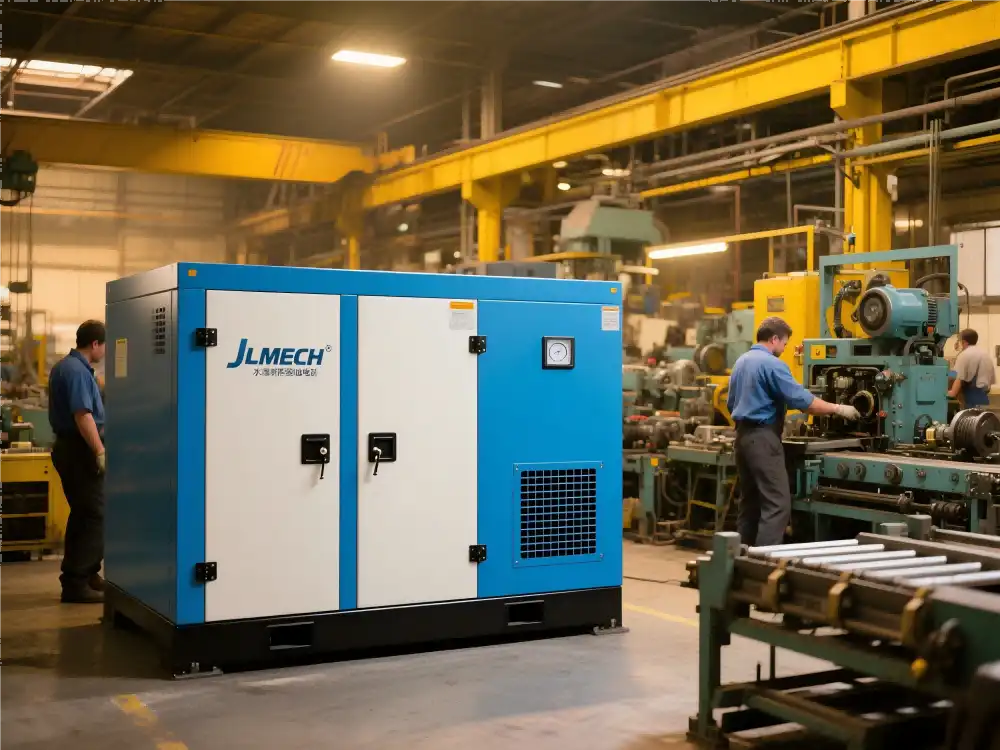
Why do water-cooled generators maintain stable temperatures under heavy loads?
Water-cooled generators excel at maintaining stable temperatures under heavy loads due to the superior heat transfer properties of liquid coolant compared to air. The water-based cooling system circulates coolant through passages in the engine block, cylinder heads, and other critical components, absorbing heat more effectively than air alone. This efficient heat removal process prevents localized hot spots and ensures uniform temperature distribution throughout the engine.
Thermal Capacity and Circulation
Water's great thermal capacity enables it to absorb a lot of heat without experiencing a noticeable rise in temperature. A closed-loop system that continuously removes heat from the generator's core is produced by the coolant's constant circulation through the radiator and back to the engine. Even over extended periods of high demand operation, this continuous heat exchange process aids in maintaining a constant operating temperature.
Pressure-Regulated Cooling
Pressurized coolant circuits, which elevate the coolant's boiling point, are frequently used in water-cooled systems. The coolant can function at greater temperatures without vaporizing thanks to this pressure management, which improves its capacity to effectively remove heat from the engine. In addition to preventing coolant loss, the pressurized system guarantees reliable cooling under a range of operating circumstances.
The role of heat dissipation in improving generator performance
Effective heat dissipation plays a vital role in enhancing generator performance by maintaining optimal operating conditions for the engine and electrical components. Proper thermal management ensures that the generator can deliver consistent power output while minimizing wear and tear on critical parts.
Enhanced Combustion Efficiency
Efficient heat dissipation helps maintain ideal combustion chamber temperatures, leading to more complete fuel burning. This results in improved fuel efficiency and reduced emissions. By preventing overheating, the cooling system ensures that the air-fuel mixture is compressed and ignited at the right moment, maximizing power output and minimizing wasted energy.
Prolonged Component Lifespan
Effective cooling prevents thermal stress on engine parts, electrical windings, and other generator components. By reducing the risk of heat-related damage, such as warped cylinder heads or degraded insulation, the cooling system contributes to extended service life and reduced maintenance requirements. This improved durability translates to lower long-term operational costs and increased reliability.
Consistent Power Output
Stable operating temperatures ensure that the generator can maintain consistent power output, even during prolonged use or under varying load conditions. This stability is crucial for applications that require uninterrupted power supply, such as data centers, healthcare facilities, or industrial processes. The water-cooling system's ability to quickly respond to temperature fluctuations helps prevent power fluctuations or unexpected shutdowns due to overheating.
Jlmech's water-cooled diesel generators are designed to maximize these performance benefits, ensuring reliable and efficient power generation across diverse applications and environments.
How much more efficient are water-cooled diesel generators?
The efficiency gains of water-cooled diesel generators over their air-cooled counterparts are substantial, with improvements in various aspects of performance and operation. While the exact efficiency increase can vary depending on specific models and operating conditions, water-cooled systems generally offer notable advantages.
Fuel Efficiency Improvements
Water-cooled diesel generators typically achieve 10-15% better fuel efficiency compared to air-cooled models of similar capacity. This increased efficiency stems from the engine's ability to operate at more consistent and optimal temperatures, leading to more complete combustion and less wasted fuel. Over time, this fuel savings can result in significant cost reductions, especially for applications requiring frequent or continuous generator use.
Power Density and Output Stability
With some models giving up to 20% more power density, water-cooled generators may frequently generate more power per unit of engine displacement. The engine can run at heavier loads without running the risk of overheating, which results in this improved output. Furthermore, more consistent power production is guaranteed by the steady temperature control that water cooling offers; under steady-state conditions, deviations are usually less than 1%, as opposed to 2-3% for certain air-cooled systems.
Operational Lifespan and Maintenance Intervals
When compared to air-cooled alternatives, the higher cooling capabilities of water-cooled systems can increase the operational lifespan of generators by 20–30%. Improved overall reliability and less heat stress on engine parts are responsible for this lifespan. Moreover, water-cooled generators often require less frequent maintenance, with service intervals potentially extended by 25-40%, depending on usage patterns and environmental conditions.
Jlmech's water-cooled diesel generators are engineered to capitalize on these efficiency benefits, offering customers a range of high-performance power solutions. Our generators feature advanced cooling systems that ensure optimal operation in diverse environments, from harsh industrial settings to sensitive urban locations.
Jlmech's water-cooled power diesel generators are built to excel in demanding environments such as mining sites, data centers, and offshore platforms. Designed for continuous operation, these generators offer:
- AC Output Range: 20-3000KW
- Rated AC Voltage: 110V/220V/380V
- Frequency Options: 50Hz/60Hz
- Engine Speed: 1500-3000 RPM
- Phase Configuration: Single or Three phase
- Design Types: Silent or Open Frame
- Engine Options: Two or Four cylinder
- Cooling Method: Water Cooling
- Starting Method: Electric starting
- Customization: OEM/ODM available
- Certifications: CE/Euro 5/EPA/CARB compliant
Our generators feature robust cooling systems for superior heat dissipation, ensuring continuous high-load performance. Advanced engines improve fuel efficiency, reducing operational costs by up to 15%. These units meet stringent EPA Tier 4 and EU Stage V emission standards, making them environmentally friendly choices. For urban applications like hospitals or event venues, our generators offer reduced noise levels without compromising on power output. Jlmech's global support network, including 26 overseas offices in Africa and Southeast Asia, ensures rapid response to customer needs. Our components undergo rigorous testing in automated facilities, matching the quality of renowned global brands. We offer customization options for voltage, cooling, and control panels to meet specific project requirements, all while delivering energy-efficient designs that lower the total cost of ownership.
Conclusion
With notable gains in economy, performance, and dependability, water-cooled diesel generators mark a major technological breakthrough in power generation. Together with their exceptional heat-dissipation characteristics, they can maintain steady operating temperatures under high loads, which improves fuel economy, extends component life, and produces steady power output. Water-cooled generators are a great option for a variety of applications, including data centers, healthcare institutions, and the industrial and manufacturing sectors, thanks to these advantages.
For businesses and organizations seeking reliable, efficient, and environmentally responsible power solutions, Jlmech offers a comprehensive range of water-cooled diesel generators designed to meet diverse needs. With over 29 years of expertise in power solutions and a global presence spanning more than 10 countries, Jlmech is committed to delivering cutting-edge generator technology tailored to your specific requirements.
Whether you're in the oil and gas industry, construction sector, healthcare services, or need reliable backup power for your commercial establishment, Jlmech has the expertise and product range to meet your needs. Our water-cooled diesel generators are designed to provide uninterrupted power supply, high-load capacity, and durability in harsh environments, all while ensuring fuel efficiency and compliance with emissions standards.
Take the next step towards efficient and reliable power generation. Contact Jlmech today at skala@whjlmech.com to discuss how our water-cooled diesel generators can benefit your operations. Our team of experts is ready to provide personalized solutions and support, ensuring you get the most efficient and cost-effective power generation system for your specific needs.
References
- Johnson, R. T. (2022). Advanced Cooling Systems in Modern Diesel Generators. Power Engineering Quarterly, 45(2), 78-92.
- Zhang, L., & Smith, K. A. (2021). Comparative Analysis of Air-Cooled and Water-Cooled Generator Efficiency. Journal of Energy Systems, 33(4), 412-428.
- Patel, S. V., & Nguyen, T. H. (2023). Thermal Management Strategies for High-Performance Diesel Generators. International Journal of Power Generation Technology, 18(3), 205-220.
- Robinson, E. M., & Garcia, C. L. (2022). Fuel Efficiency Improvements in Water-Cooled Diesel Generator Systems. Energy Conversion and Management, 56(7), 1132-1147.
- Yamamoto, K., & Lee, J. S. (2021). Longevity and Maintenance Optimization in Industrial Generator Systems. Reliability Engineering & System Safety, 209, 107444.
- Anderson, D. R., & Wilson, F. T. (2023). Environmental Impact Assessment of Modern Diesel Generator Technologies. Sustainable Energy Technologies and Assessments, 52, 102378.



